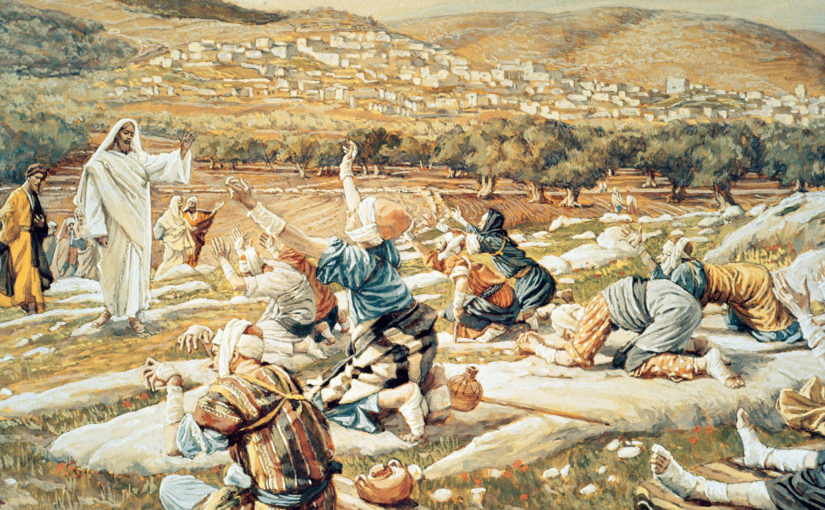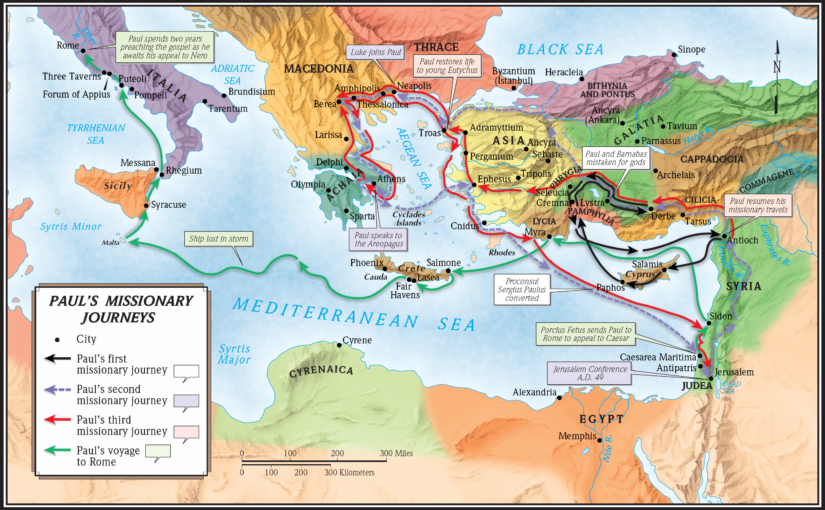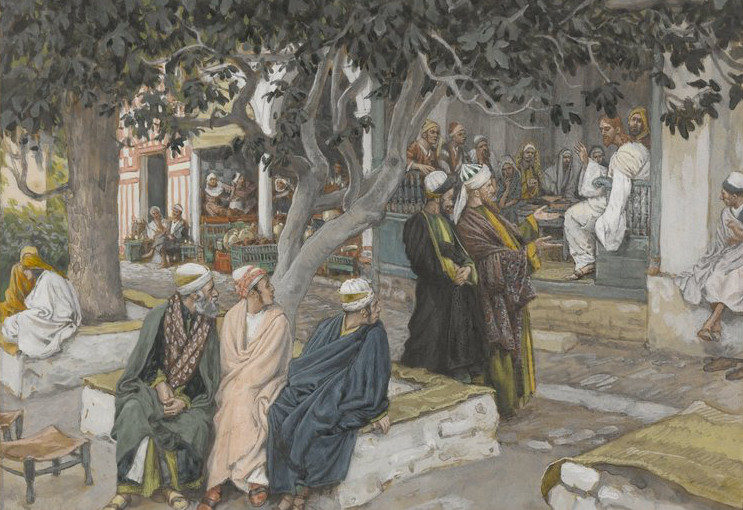Today’s reading: Judges 3; Acts 7; Jeremiah 16; Mark 2
July 20th, 2016
JK’s sermon this Sunday, Victory Realized, made clear the prophecy of the Great White Throne from Revelation 20:11-15; you are in or you are out. The decision is final and perfect. In Mark 2:21-22, Jesus helps the Pharisees along to with this idea. They were struggling. Their religion, passed down from generation to generation, was quite comfortable to them (Luke 5:39). They had it figured out. They lived according to the law of Moses, or at least they thought they did. They certainly had each other thinking they were good to go (Matthew 6:5, Matthew 23:5). Judaism did not recognize Jesus as the Christ. They were constantly trying to fit what Jesus did in to their ideas of their salvation plan: saved through works. A heart wrenching denial for me to read about (Matthew 23:37). God’s children, His chosen people, chose themselves and their adherence to the law to save themselves (John 12:43). God would you rescue them? Please God?
Jesus was constantly fulfilling their law. The fruit of the Spirit filled it all up (Galatians 5:22-23); check, check, check; and this confused them. They confused the fulfillment of the law with breaking the law (Matthew 5:17). It was as if they never really knew God (John 8:9). It became more and more obvious to those that followed Jesus that the Pharisees did not know the law after all (Matthew 23:24).
In the scripture for today, Jesus had just called Matthew Levi, a despised tax collector that the Pharisees would not associate with, to follow Him as a proclaimer of the Gospel. As if they could not stand this outrage, the followers of the Pharisees challenged Jesus with a question in an attempt to illuminate how He and His followers were out of step with the law. “How come your followers do not fast?” Jesus used one of their manufactured documents to help them understand. The Rabbi’s produced a document called the Megillat Taanit, translated as the scroll of fasting. While Yom Kippur, or day of atonement, was the only prescribed day to fast per the law, and certainly voluntary fasts to accompany life’s circumstances seemed true to the spirit of a true fast, they had manufactured other prescribed fasts. Some even subscribed to a twice a week fast on Tuesday’s and Thursday’s, etc. When they fasted they fasted to please men (Matthew 6:16), they fasted publicly and because of this, this scroll of fasting set out rules that would be sure not to let fasting interrupt with other important celebrations, like a marriage feast. Apparently a public fast meant showing up to a celebration looking disheveled. Perhaps they thought drawing attention to oneself at a celebration centered on someone or something else would be in bad taste.
And Jesus said unto them, Can the children of the bridechamber fast, while the bridegroom is with them? as long as they have the bridegroom with them, they cannot fast. But the days will come, when the bridegroom shall be taken away from them, and then shall they fast in those days. No man also seweth a piece of new cloth on an old garment: else the new piece that filled it up taketh away from the old, and the rent is made worse. And no man putteth new wine into old bottles: else the new wine doth burst the bottles, and the wine is spilled, and the bottles will be marred: but new wine must be put into new bottles. – Mark 2:19–22
John MacArthur explains it this way in his sermon The Matchless Distinctiveness of the Gospel:
So our Lord is simply saying, in effect, the Messiah’s here, this is not a time to fast. It is completely inappropriate for Jesus’ disciples to fast and moan while He, the long-awaited Messiah is present. He has come. He has arrived this day as He said in the synagogue in Nazareth, the Scripture is fulfilled in your ears, He is present. The fasting of the Pharisees, the fasting of the followers of John the Baptist, that’s what’s out of place, completely out of touch with God’s purpose and what God is doing, completely out of touch with the reality that the Messiah was there.
Jesus makes clear that He was the Christ, He brought with Him a new covenant, and it stood on its own. It could not fit into their ideas of salvation through works. It would break them. It would not work. They were incompatible. So then the decision is yours, do you believe or don’t you? Will you abandon your salvation plan for Christ’s or won’t you (Acts 13:39)? Like the pearl of great price, Jesus’s invitation requires you to sell everything to buy it. All your beliefs of how you might be saved, how you ought to live, what is right and wrong, who you are and who God is, what is the truth and what are lies. You have to give it all up, have faith and trust in God. Are you in or are you out?









